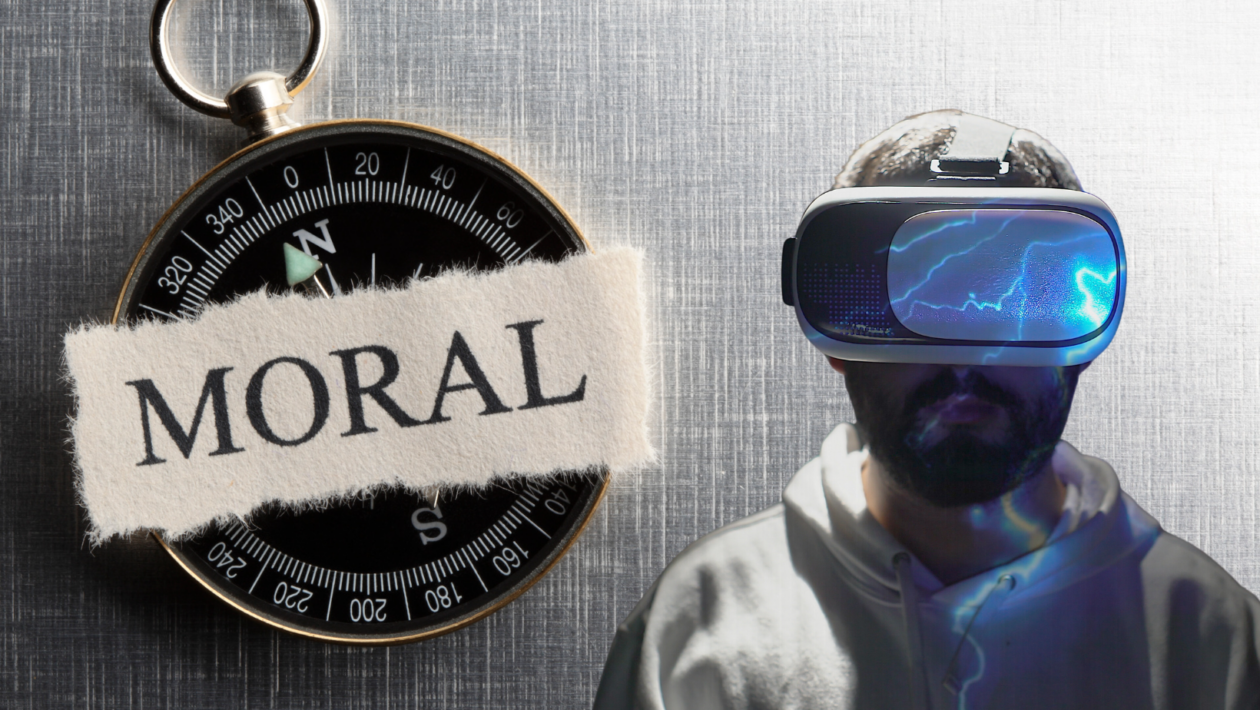What if we created a world where good guys win?
From folklore to film, humans are hardwired to root for the embattled protagonist in their struggle for justice while resisting the corrupting temptations afforded by those with money and power. The allure of fairy tales is rooted in their feel-good subversion of reality, even as the same unequal power dynamic repeats across centuries and civilizations.
In Netflix’s Black Mirror anthology, the fictional architects of the “Nosedive” universe attempt to rebalance the equation by assigning societal status in accordance with an individual’s behavior. Social scoring replaces financial power as the currency to attain preferential treatment in every aspect of their existence, from purchasing property to priority status in airline rescheduling. The democratic ethos of the peer-to-peer ratings system is lost on all the episode’s characters; a perfect encapsulation of the pitfalls in commoditizing a person’s perceived value to society.
Both decentralized finance and Web3 have similar origin stories. Founded on the utopian ideals of communal ownership and consensus, enthusiasm for a permissionless ecosystem has been hampered by concerns about the perceived encroachment of centralized power, be it Web2 juggernauts or Wall Street titans.
To crypto purists, this is antithetical to the ethos on which a decentralized, virtual world was founded. In these instances, technology often becomes a convenient scapegoat. But scratch beneath the surface and it becomes clear — the real issue is a fundamental human error with the utility of technology. It is not just a matter of how we use it; it is what we do with it that makes all the difference.
Tokenizing social credits
At the crux of this challenge is governance. As evidenced by the astounding success of Sweden’s prison reform program, society should progress from punitive enforcement to a rewards-incentivization model. Critical to building a more equitable and inclusive community is encouraging self-directed behavioral change within each individual.
Presently, the valuation of all blockchain tokens is tied to their perceived correlation in fiat currencies. Taking this concept a step further, what if there was a separate category of tokens that can only be obtained through acts of service?
Distributed ledger technology is the ideal vehicle on which “positive actions” such as contributing to a crowdsourcing project, supporting a fundraising campaign or even simple day-to-day activities like troubleshooting web issues for a friend can be recorded. Under this dual tokenomics system, one class of tokens can be achieved through routine activity such as validating blockchain transactions or being purchased with fiat currency. The other can only be earned through “positive acts” and cannot be traded or bought by other users.
While the latter class of tokens functions as a standard currency with which goods and services can be obtained, only tokens earned from positive actions grant their holders access to exclusive platforms, portals and experiences within the realms of a metaverse.
This then begs the question of governance. Creating a centralized, omnipresent, all-powerful entity to validate what constitutes a “positive act” as well as control token issuance and circulation defeats the very purpose and merits of decentralization. The reality is that this system does not exist in perfect practice, for a reason.
As Lord Acton famously quipped: Power corrupts, and absolute power corrupts absolutely. We have witnessed this truth reverberate throughout human history. Perhaps it is time to shift the paradigm of control — from people in power to people empowered.
China’s social credits system took a similar approach, only it was executed through a more punitive lens. But what if we turned the system on its head and developed a model based on positive reinforcement instead of punishment? Avoiding the dystopian surveillance state described in George Orwell’s 1984, there is ample impetus to explore a self-regulated system where individuals are empowered to reward one another for the social good that they do.
This is an opportunity to create a better world. There is no better place than the metaverse to trial different models, predicated on Web3’s consensus and community-led approach until we get the balance just right.
Just like the theory of Tabula Rasa where all users start with a clean slate, the aim of creating a rewards-based economic model that does not allow for inherited wealth is a societal rebirth of sorts — except that it begins in the virtual realm.
Going one step further, this system could even challenge everyday social dynamics that are currently underpinned by one’s economic status. To reduce our reliance on money as the sole means of mobility, users can now progress on equal footing to earn social tokens on a more level playing field.
The moral obligations of the metaverse
Much ado has been made about the evils of the internet, its role in cyberbullying, espionage and illegal trade, the list goes on. Like any tool, technology also possesses infinite potential for good. Wikipedia remains a shining example — a truly open-source, user-contributed knowledge repository, accessible to billions of netizens at no cost.
Current media discourse on the metaverse fixates on its financial potential for brands and marketers. Seemingly little matter is paid to how it benefits its users beyond trying to sell new products or services. Going back to the carrot-and-stick analogy, Web3 architects cannot rely on the decades-old smoke-and-mirrors tactics for users.
Social audio platform Clubhouse experienced an explosion of popularity during the Covid-19 pandemic. Much of its overnight success stemmed from the exclusive nature of its invite-only onboarding mechanism coupled with publicity around business moguls and celebrities joining the platform. Today, Clubhouse has arguably lost much of its early hype as users transitioned to Instagram Live and Twitter Spaces, relegating social audio to a mere supplementary feature.
Instead of inciting FOMO, or the fear of missing out, the most successful campaigns are anchored around the tangible, intrinsic good they bring to users. Awareness of mental health emerged as the silver lining of the pandemic, as viral social media posts commemorating those who passed away from suicide resulted in universal calls for greater compassion in accommodating mental health issues.
Some say money is the root of all evil and yet it persists as the dominant currency. Tokenizing social credits is a novel way of rewarding users for acts of services without penalizing them for perceived transgressions; sidestepping the double-edged sword of a peer-to-peer ratings system.
In short — nice guys can finish first. Adopting an economic model centered around the incentivization of good behavior is a chance to redress society’s dependence on financial wealth and change deeply entrenched mores.





